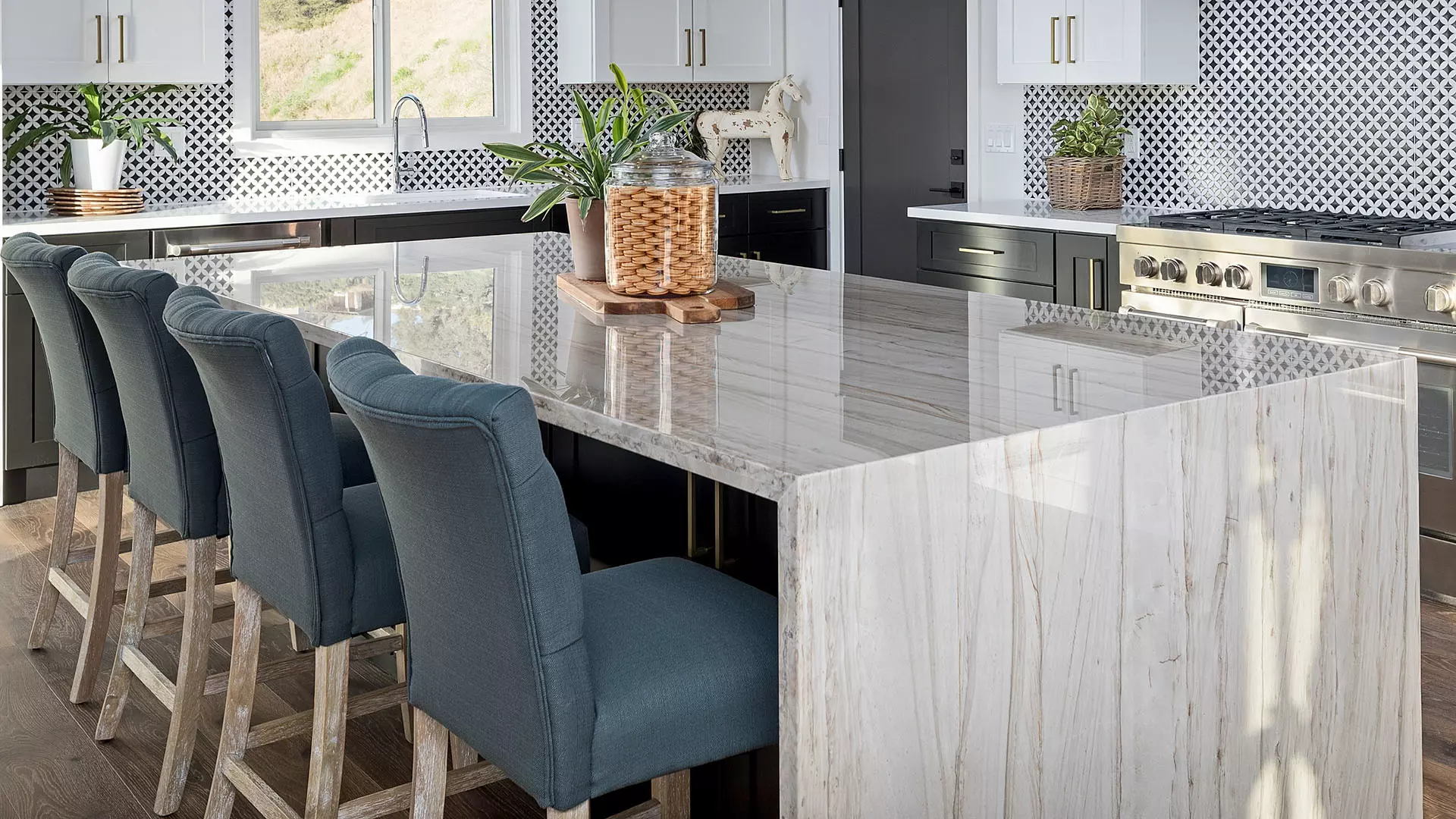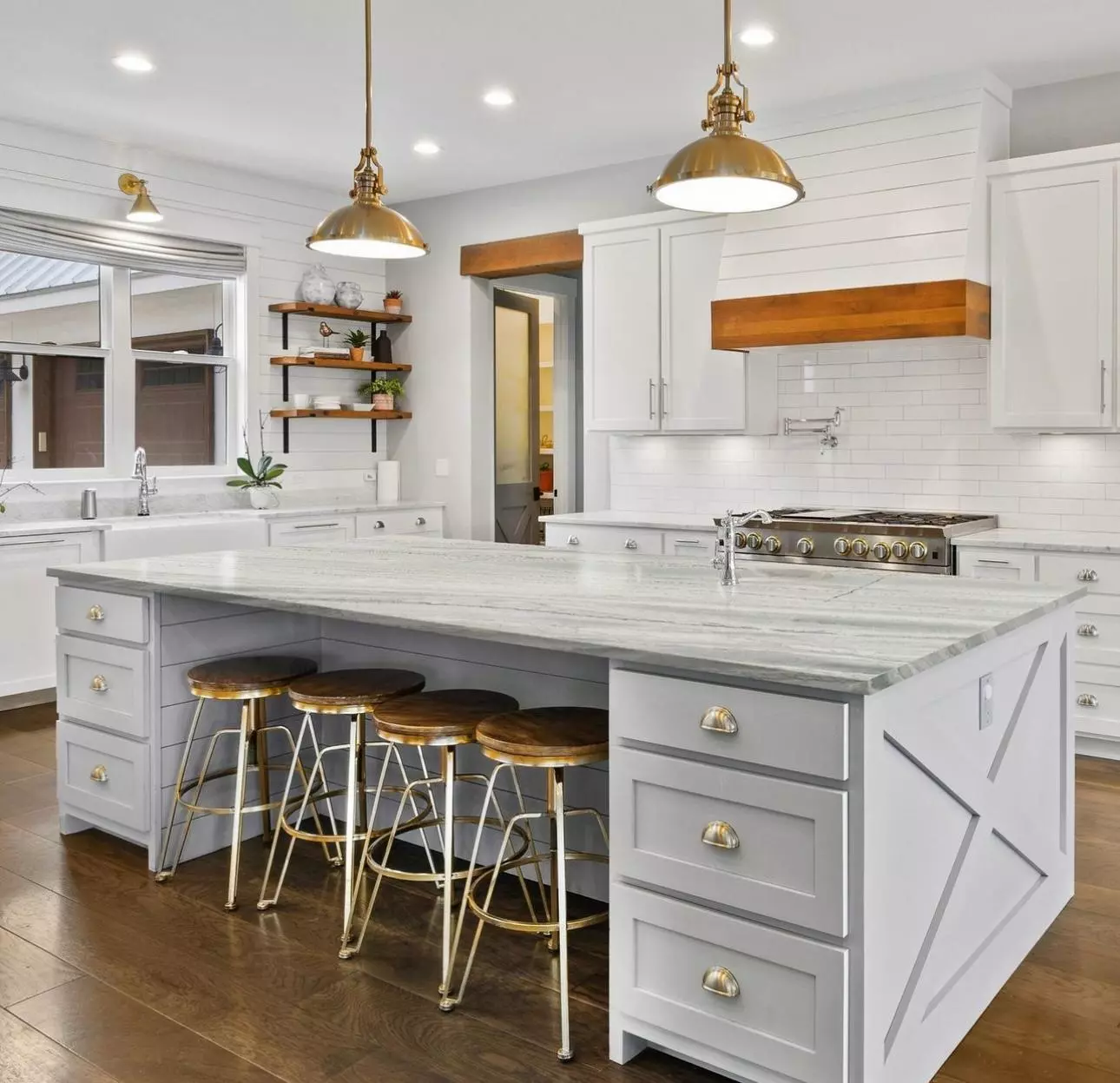When it comes to choosing the right slab material for your home, there are several options to consider. Each type of material brings its own set of advantages and disadvantages, so it’s important to weigh these factors carefully before making a decision. In this blog post, we’ll explore the pros and cons of some common slab materials to help you make an informed choice.
Granite
Pros:
1. *Durability*: Granite is a natural stone known for its strength and durability. It is resistant to scratches, heat, and stains, making it a popular choice for kitchen countertops.
2. *Variety*: Granite comes in a wide range of colors and patterns, allowing you to find a slab that complements your home’s aesthetic.
3. *Value*: Granite countertops can add value to your home due to their durability and aesthetic appeal.
Cons:
1. *Cost*: Granite can be expensive compared to other materials, especially if you choose rare or exotic varieties.
2. *Maintenance*: Granite requires regular sealing to prevent stains and maintain its luster.
3. *Weight*: Granite is heavy, so proper installation is crucial to ensure its longevity.
Quartz
Pros:
1. *Low Maintenance*: Quartz is non-porous, making it resistant to stains and bacteria. It does not require sealing like granite.
2. *Consistency*: Quartz slabs are manufactured, providing a consistent color and pattern throughout the slab.
3. *Durability*: Quartz is highly resistant to scratches and impact, making it a great choice for busy kitchens.
Cons:
1. *Heat Resistance*: While quartz is generally heat resistant, extreme heat can damage the resin used in its production.
2. *Cost*: Quartz countertops can be more expensive than some natural stone options.
3. *UV Sensitivity*: Prolonged exposure to direct sunlight can cause quartz to fade or discolor over time.
Marble
Pros:
1. *Elegance*: Marble is a luxurious and timeless material that adds a sophisticated touch to any space.
2. *Cool Temperature*: Marble stays cool to the touch, making it ideal for baking and pastry making.
3. *Aesthetic Appeal*: The unique veining and patterns of marble create a one-of-a-kind look for each slab.
Cons:
1. *Porosity*: Marble is porous and prone to staining, especially from acidic substances like citrus juices.
2. *Scratch and Etch Prone*: Marble is softer than granite and quartz, making it more susceptible to scratches and etching.
3. *Maintenance*: Marble requires regular sealing and more delicate care to maintain its beauty.
Quartzite
Pros:
1. *Durability*: Quartzite is a natural stone that is extremely durable and resistant to heat, scratches, and stains.
2. *Aesthetic Appeal*: Quartzite often features beautiful veining and colors that can resemble marble but with greater durability.
3. *Low Maintenance*: Quartzite requires minimal maintenance and does not need regular sealing like marble.
Cons:
1. *Cost*: Quartzite can be on the higher end of the price range for natural stone materials.
2. *Limited Color Options*: While quartzite is beautiful, it may have fewer color options compared to quartz or granite.
3. *Scratch Resistance*: While durable, quartzite can still be scratched by sharp objects if not properly cared for.
Soapstone
Pros:
1. *Heat Resistance*: Soapstone is known for its excellent heat resistance, making it ideal for kitchen countertops near stoves and ovens.
2. *Durability*: Soapstone is a dense and durable material that is resistant to stains and chemicals.
3. *Aesthetic Appeal*: Soapstone has a unique, natural matte appearance that develops a patina over time, adding character to the surface.
Cons:
1. *Maintenance*: Soapstone requires regular oiling to maintain its appearance and to help conceal scratches and marks.
2. *Limited Color Options*: Soapstone typically comes in shades of gray, black, or green, which may not suit all design preferences.
3. *Softness*: Soapstone is softer than some other natural stone materials, so it can be more easily scratched or dented with heavy use.
When selecting a slab material for your home, consider your priorities in terms of durability, maintenance, aesthetics, and budget. Each material has its own unique qualities that may make it more suitable for certain spaces or lifestyles. By weighing the pros and cons of different slab materials, you can make an informed decision that will enhance the beauty and functionality of your home for years to come. If you have any questions, the experts here at Maestro Surfaces would be glad to help guide you!


